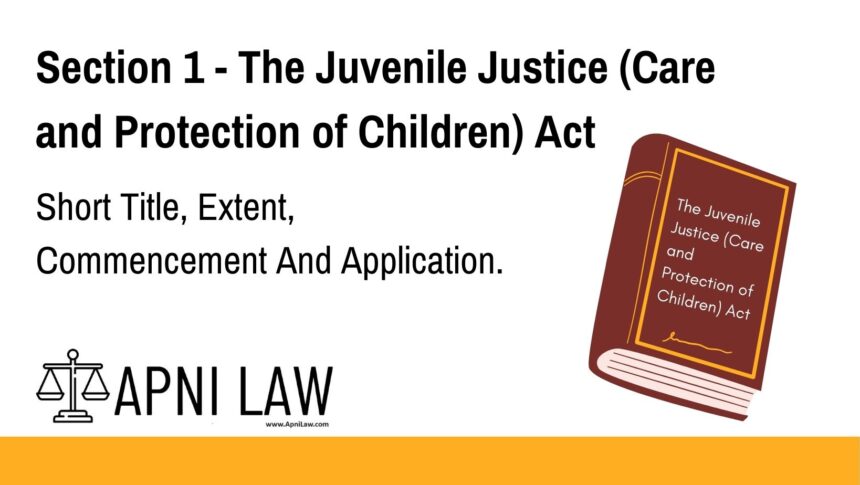Code
Section 1
(1) This Act may be called the Juvenile Justice (Care and Protection of Children) Act, 2015.
(2) It extends to the whole of India.
(3) It shall come into force on such date as the Central Government may, by notification in the Official Gazette, appoint.
(4) Notwithstanding anything contained in any other law for the time being in force, the provisions of this Act shall apply to all matters concerning children in need of care and protection and children in conflict with law, including—
(i) apprehension, detention, prosecution, penalty or imprisonment, rehabilitation and social re-integration of children in conflict with law;
(ii) procedures and decisions or orders relating to rehabilitation, adoption, re-integration, and restoration of children in need of care and protection.
Explanation
Section 1 lays the foundation of the Juvenile Justice (Care and Protection of Children) Act, 2015.
-
It declares the short title of the Act.
-
Extends its applicability to the entire country of India.
-
Specifies that the Act will be brought into force by a government notification.
-
Clarifies that in all matters related to children (whether children in conflict with law or children needing care and protection), this Act will prevail over any other laws.
This ensures that a uniform, child-centric framework governs the legal processes involving minors across India.
Illustration
Example:
Suppose a child aged 15 is accused of theft. Even though theft is generally governed by criminal law, the child’s case will be handled under the Juvenile Justice Act’s special procedures, ensuring rehabilitative measures instead of strict punishment.
Common Questions and Answers
1. When did the Juvenile Justice Act, 2015 come into force?
-
The Act came into force on 15th January 2016, as per the notification by the Central Government.
2. Does the Juvenile Justice Act apply throughout India?
-
Yes, it extends to the entire territory of India.
3. Who are considered under “children in conflict with law”?
-
Children alleged or found to have committed an offense and who have not completed 18 years of age at the time of commission of the offense.
4. What about children who need care and protection?
-
The Act covers children who are abused, abandoned, lost, orphaned, or whose guardians are unfit or unwilling to care for them.
5. Can a child be tried under regular criminal laws?
-
No, for children under 18, only the Juvenile Justice Act governs legal proceedings.
Conclusion
Section 1 of the Juvenile Justice (Care and Protection of Children) Act, 2015 firmly establishes the Act’s overarching authority in child-related legal matters across India.
It ensures that every child, whether vulnerable or accused, is treated with care, protection, and a focus on rehabilitation rather than punishment. This introductory provision guarantees a consistent, compassionate approach nationwide, reflecting the country’s commitment to safeguarding the rights and futures of its youngest citizens.








